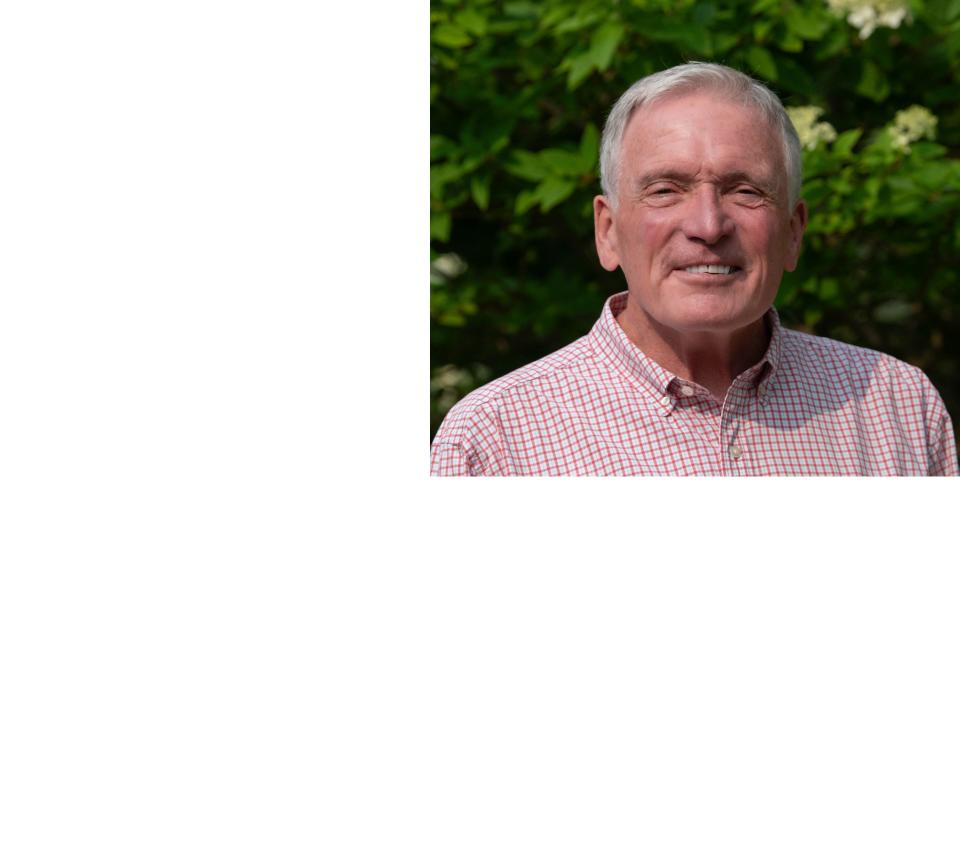Douglas Brouwer: How to save a broken society
I don’t remember ever living through such a sad, lonely, angry, and mean time in U.S. history. Most days I can’t stand to look at television news. I hesitate to mention politics to neighbors for fear of finding out that we are on opposite sides of what has become a great divide.
In the late '60s and early '70s, when I was coming of age and facing a military draft (and an all-but-certain deployment to Vietnam), the country felt to me, as it does now, as though it was coming apart at the seams. But even then, I don’t remember such despair over the future, the future of democracy itself. I certainly don’t remember elected representatives talking matter-of-factly about civil war or “national divorce.”
The slogan back then — “make love, not war” — was kind of dumb, I thought, but hardly destabilizing to society. What I remember was a feeling that somehow democracy would survive. We would find a way out of Vietnam and into a better future, even if we couldn’t quite imagine it.

And then, after a decade of Richard Nixon, Gerald Ford, and Jimmy Carter, a former Hollywood actor (and California governor) came along to say, “Let’s make America great again.” (Yes, they were originally Reagan’s words.) Something about that message took hold, and for a brief time, we believed it.
In 1980, Reagan won in a landslide, taking all but five states (and the District of Columbia) and winning 489 electoral votes. Not only that, but for the first time since 1954 Republicans took control of the Senate. In 1984 Reagan won by an even bigger margin, taking 49 of 50 states and 525 votes in the Electoral College. That year his slogan was “It’s morning again in America.”
Not for everyone, of course. But that’s to be expected in a healthy democracy. There should be an opposing voice, someone who raises thoughtful objections. Democracy thrives, as we have all heard, when there is lively, healthy debate.
But those days seem like a long time ago. Lively, healthy debate has given way to anger and resentment, shouting and bullying. And so, when I saw David Brooks’ opinion column in the New York Times at the end of January with the headline “How to Save a Sad, Lonely, Angry, and Mean Society,” I scrolled quickly to the column and read it. I should note that Brooks is no liberal. His conversative credentials have been well established. The truth is, the Times has several conservative columnists — Bret Stephens, Ross Douthat, David French, and (occasionally) Peter Wehner, among others. I feel as though I need to make this point because someone will want to dismiss anything in the Times as left-leaning and hopelessly liberal. Objectively, that’s just not the case.
I’m not entirely sure what to make of Brooks’ January column. As much as I was attracted by the title, and as much as I believe his thesis — namely, that art, literature and music will make us better people, able to have better conversations, and more willing to understand a different point of view — I doubt his thesis is going to be heard in our current national discourse. We’re just too angry.
Still, I agree with him, and I admire him for writing what he did. Brooks has been doing more than most to raise the level of our national discourse. His latest book, "How to Know a Person: The Art of Seeing Others Deeply and Being Deeply Seen," has spent 13 weeks on the Times’ bestseller list, a remarkable achievement for a book that asks us to get back to basics in all our relationships.
“There is one skill,” he writes, “that lies at the heart of any healthy person, family, school, community organization, or society: the ability to see someone else deeply — and make them feel seen — to accurately know another person, to let them feel valued, heard and understood.”
Brooks was brought up Jewish, but rarely attended synagogue in his adult life. It’s a long story, but Brooks has been moving, haltingly at times, in the direction of Christian faith. Everything he has discovered about this new faith has attracted him. And his writing — both columns and recent books — has been filled with references to the teaching and values of this new faith. I mention that because my faith too compels me to look beyond division, to see others deeply (and make them feel seen), to forgive the sins of others (while asking God to forgive my own), and even to love my enemies.
I hope Brooks keeps listening to his new faith.
— Douglas Brouwer lives in Park Township. Previous columns and other writing can be found at dougsblog.substack.com.
This article originally appeared on The Holland Sentinel: Douglas Brouwer: How to save a broken society

